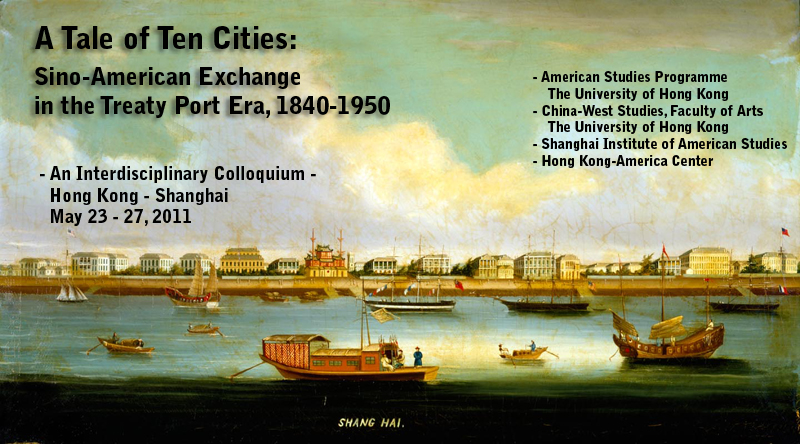RESEARCH COLLOQUIUM OVERVIEW:
Before the Opium War, historical circumstances precluded the formation of a Sino-American relationship that would allow much intellectual exchange to take place. At that time, China had funneled its entire American trade through the single port of Canton; Sino-American intellectual exchanges, mirroring commerce, were equally constricted. Yet with the opening of the treaty ports after the war, Chinese and Americans interested in trading not goods but ideas could now do so, the largest obstacles having been removed. Over the next century, people and ideas passing in both directions through multiple Chinese ports would bring social, cultural, and intellectual change to China and the United States.
Despite the significance of this exchange, scholars have provided it with sporadic rather than systematic attention. Generally speaking, researchers interested in Sino-American cultural contacts in the latter half of the 19th century have focused on the experience of Chinese immigrants in the United States. When they have shifted their attention to Americans in China, the tendency has been to focus exclusively on the unequal nature of the China’s relationship with the West – not on ideas, intellectuals, and institutions. The purpose, therefore, of this interdisciplinary research colloquium is to bring together scholars to discuss, in holistic fashion, the cultural and intellectual fruits effected by the American presence in China during this period. And as many of the ideas from this period endure in China and the United States today, our purpose will also be to explore the continued relevance of these exchanges in the twenty-first century.
The colloquium welcomes contributions that explore areas such as science and medicine, religion, journalism, education, literature & autobiography, museums and tourism, foodways, the law and diplomacy, agriculture, engineering, and architecture, among others. Though most of the colloquium will take place on the campus of Hong Kong University, our conversations will be mobile. Some contributors will participate in a special session to be held in Shanghai, the most important center of intellectual exchange.
When and Where:
Council Chambers, The University of Hong Kong, Hong Kong; Shanghai Institute of American Studies, Shanghai, China
May 23 and 24 in Hong Kong; 26 and 27 in Shanghai (Monday-Friday) May 2011.
Session Format:
The colloquium will consist of one-hour sessions during which time a participant will present his or her paper and discuss the essay with the group. We ask that each colloquium participant submit a draft of his or her paper in English by 2 May (Monday) 2011 to John Haddad [jhaddad@hku.hk]. The essays will then be distributed to the fellow participants before the colloquium convenes.
Publications:
We hope to publish the conference proceedings in English as a book collection that is then translated into Chinese and Japanese. Contributors will be asked to submit their final essay for purposes of publication by 1 December 2011.
Deadlines:
For submitting a draft of the paper for distribution to fellow colloquium participants: 2 (Monday) May 2011
Poster: http://www.hku.hk/amstudy/news/images/20110523.pdf
Contact Person:
Please correspond with John Haddad at [ jhaddad@hku.hk ].
